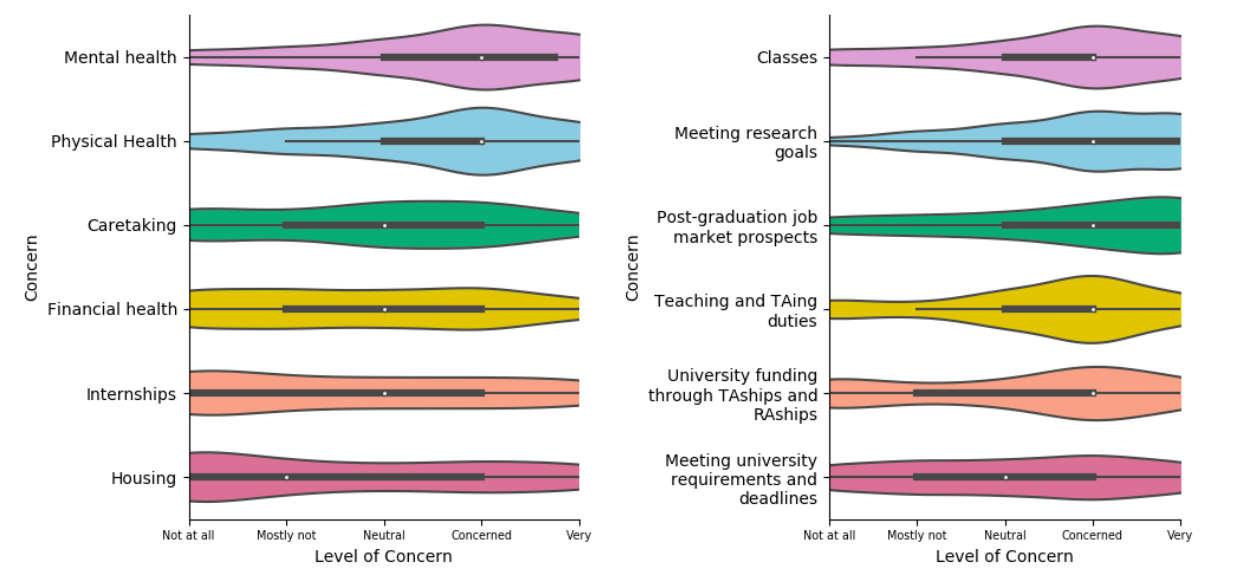A survey of Cornell Computing and Information Science [CIS] graduate students that revealed shared feelings of isolation and anxiety in the wake of the ongoing COVID-19 pandemic has served as an unlikely source of connection and unity heading into the Fall 2020 semester.
The survey of 106 fellow computing graduate students and subsequent report were carried out in an effort to better understand how students were coping after concerns over the spread of coronavirus forced Cornell University to suspend in-person classes as of March 13 and send students home for the semester. Graduate Students for Gender Inclusion in Computing, a CIS-based graduate student group, led the survey and drafted the report.
In the weeks that followed, graduate students representing CIS’s three departments – Computer Science, Information Science, and Statistics and Data Science – as well as some from Operations Research and Information Engineering (ORIE) expressed feelings of isolation and depression, loss of productivity, and unease amid numerous uncertainties. Mental health, specifically, was the top personal concern among surveyed students, followed by physical health, caretaking, and financial health.
GSGIC screenshot of findings.png

“The ways that this pandemic has had an impact feel innumerable,” said Marianne Aubin Le Quéré, a doctoral student in Information Science and a coauthor of the GSGIC report. “Some people were doing better and being more productive in a work-from-home situation, but many had their lives disrupted in really different ways, from having to provide for others on a grad student salary, through adapting their academic job prospects, to tricky family situations and visa difficulties.”
Through stories of shared struggle, students found a source of support and connection, within Cornell and beyond. CIS students in particular have organized around the survey’s findings and recommendations, working with unit faculty and administrators to address student concerns as Cornell shifts to a hybrid in-person/remote learning environment for the Fall 2020 semester.
The response to the report – from faculty and students – has been positive, according to GSGIC leadership: Within Cornell, GSGIC partnered with other student groups to host a student-led webinar to discuss some of the problems outlined in the report and to iron out next steps. The departments of Computer Science and Information Science also hosted individual town halls to discuss findings and recommendations presented in the report.
“It’s been encouraging and empowering to see the support from community members, especially from CIS faculty, who have taken the time to message us and to share the findings with their networks,” said GSGIC’s Andrea Cuadra, a doctoral student in Information Science and report coauthor. “This effort has brought students together to advocate for action. I’m hopeful that this energy will continue as the Fall 2020 semester begins, and that as a community, we will use these insights to create a more supportive and caring environment for everyone.”
Report authors are CIS graduate students Marianne Aubin Le Quere, Maria Antoniak, Tegan Wilson, Alexa VanHattum, Griffin Berlstein, Elizabeth Ricci, Andrea Cuadra, Sachi Angle, and Sharifa Sultana.
Louis DiPietro is the communications coordinator for Information Science.



